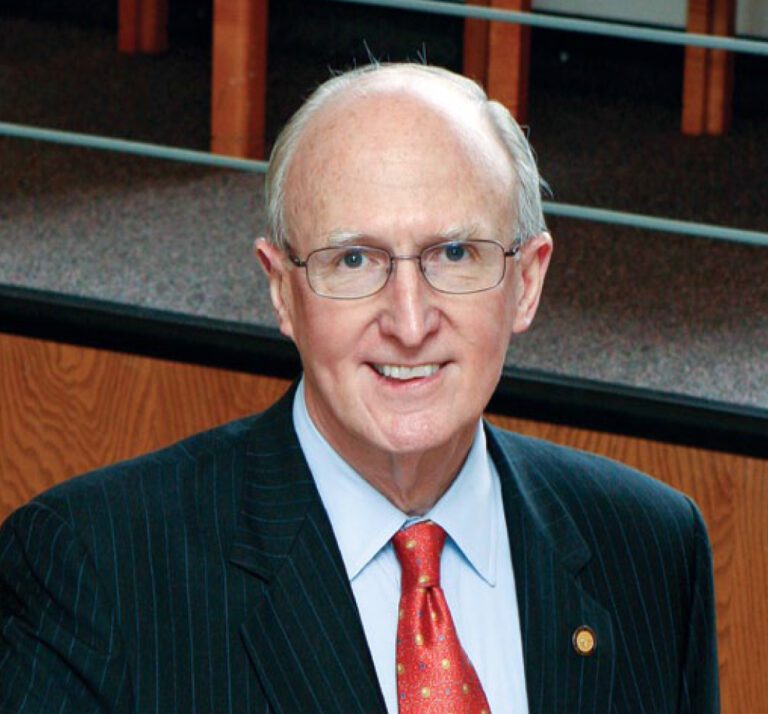
By Dr. Robert A. Scott
The murder in Memphis of Tyre Nichols, a Black man, by five Black police officers is a tragedy and a puzzle. Many of us have been led to believe that the murder of young Black men in police custody is the result of racism. It often seems to be the case. But here we have Black police killing a Black man. What can this mean?
I think the argument that police killings have a lot to do with police culture and the socialization of police recruits to demand respect as a defensive mechanism has merit. This certainly seems to be the case in Memphis, where an officer was heard calling for Nichols to “stop and show respect.”
It has been thought for decades that officers who used force only as a last resort were more likely to end up dead. Consequently, the imperative promoted by the Department of Justice was the “warrior mind-set,” teaching, as one study asserted, “to see almost any civilian as a potentially lethal weapon.”
The urgency with which police and others demand respect is striking for several reasons. First, their demands fail to acknowledge that respect is a two-way exchange; second, they ignore the fact that individual and group respect are not permanent. No one can demand respect and expect the results to be either honest or permanent.
It makes sense for those who have been subjected to bias and incivility personally or historically to want respect. Indeed, I assume that everyone wants respect as a simple fact of his or her humanity. This includes police, too. It also is true that racism, antisemitism and other forms of prejudice are not only active in our society, but also deny respect to those who are the subject of discrimination and uncivil actions.
We should assert in our schools and houses of worship, and especially in our homes, that others should be respected for their humanity even if they are different from us. But there is a difference between respect for humanity at large, respect for ethnic, national, religious, community, and racial groups in general, and respect for any individual.
While individual respect must be earned, group respect (often thought of as respect for diversity) and general respect must be offered freely. An individual’s actions should no more reflect poorly on an ethnic, national, racial, religious or professional group than a group’s actions should reflect poorly on all of humanity. But respect in these larger contexts cannot mitigate the disrespectful behavior of an individual. I respect you first as a human, second as an individual. This is the truth that some ignore.
However, individual respect can be regained through effort: by being sincere and helping others, by showing concern, by acting as part of a group which is trying to be positive.
Respect is lost by acting in a callous manner, by disregarding others, by insincerity or by belittling the place and relevance of others. When someone “demands” respect and does so in a manner which itself is disrespectful, he or she not only misses the point but also demeans the issue.
A school, college, university or a courtroom is a precious place. It is where truth in whatever form should be pursued without hindrance. It is where freedom of speech must be protected to the utmost. It is place where diversity – of background, ethnicity, nationality, religion, ideas – should be valued. It also is a place where civil discourse and respect for one another is essential if a full and honest exchange of views is to be assured.
Without common courtesy, ears are closed. When ears are closed, there can be no mutual respect. We must learn to disagree without being disagreeable. Those who shout the loudest for respect do the least to gain it.
These are difficult times when relations between groups are strained. I would hope that, even in times like these, families, clergy and teachers would prepare children with the basic values of civility, courtesy, sincerity and respect for others. We should demand the same of our politicians and police.
Those in positions of authority teach by their actions. When they fail to respect others, when they view others as the enemy without cause, they convey a message that such behavior is acceptable. It is not. When this happens, our national values – freedom of speech, freedom of assembly, democracy itself – are disrespected and put in jeopardy.
Robert A. Scott is president Emeritus of Adelphi University: Author, “How University Boards Work,” Johns Hopkins University Press, Eric Hoffer Book Awardee







Excellent points. I agree that respect is a two-way exchange. No one should ever demand respect in a tone that oozes with disrespect.